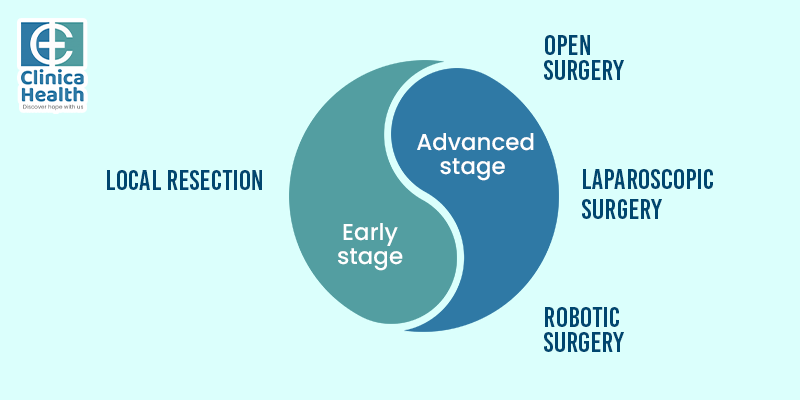-
 Call Now:
8010 552 552
7595 838 844
Call Now:
8010 552 552
7595 838 844
-
 Email Me:
[email protected]
Email Me:
[email protected]
According to the reports of the World Health Organization (WHO), rectal cancer is the third most common type of cancer and is the second leading cause of cancer-related deaths. A few years back, this particular type of cancer was considered to affect individuals above 50 years. However, nowadays younger generation is also getting diagnosed with rectal cancer. Rectal and colon cancer are often grouped together as colorectal cancer because they share many features in common.
Surgery is the most effective treatment to treat rectal cancer. During rectal cancer surgery, the surgeon removes the tumour from the rectum and then reattaches the remaining part of the colon. Following the surgery, most of the patients are reported to have an increased survival rate and they were able to lead a normal life.
To achieve better treatment outcomes, your surgeon might recommend chemotherapy and radiation therapy along with surgery to lower the chance of recurrence.
Depending upon the stage, there are different types of rectal cancer surgery.
In most advanced stages of rectal cancer, the cancerous polyps also spread to the colon. In that case, the following surgeries are done to remove the metastatic lesions.

Right or left hemicolectomy: Rectal cancer tends to spread to the colon. Depending on the part of the colon, the surgeon performs either right or left hemicolectomy. During right hemicolectomy, the ascending colon and part of the transverse colon are removed. The remaining transverse colon is then connected to the end of the small intestine.
On the other hand, left hemicolectomy involves removing the descending colon, sigmoid colon and a portion of the transverse colon which is then connected to the rectum.
Total mesorectal excision: It is a gold standard for rectal cancer surgery because of better outcomes. In patients where the polyps have spread to the entire bowel, this procedure is performed. It is a technique where the entire bowel with the tumour is removed along the surrounding fat and lymph nodes.
Rectal cancer is a treatable condition with the right and timely surgical intervention. The right of surgery you need will depend upon the severity and location of the polyps. You are always advised to discuss your options with an experienced oncologist along with the recovery options.